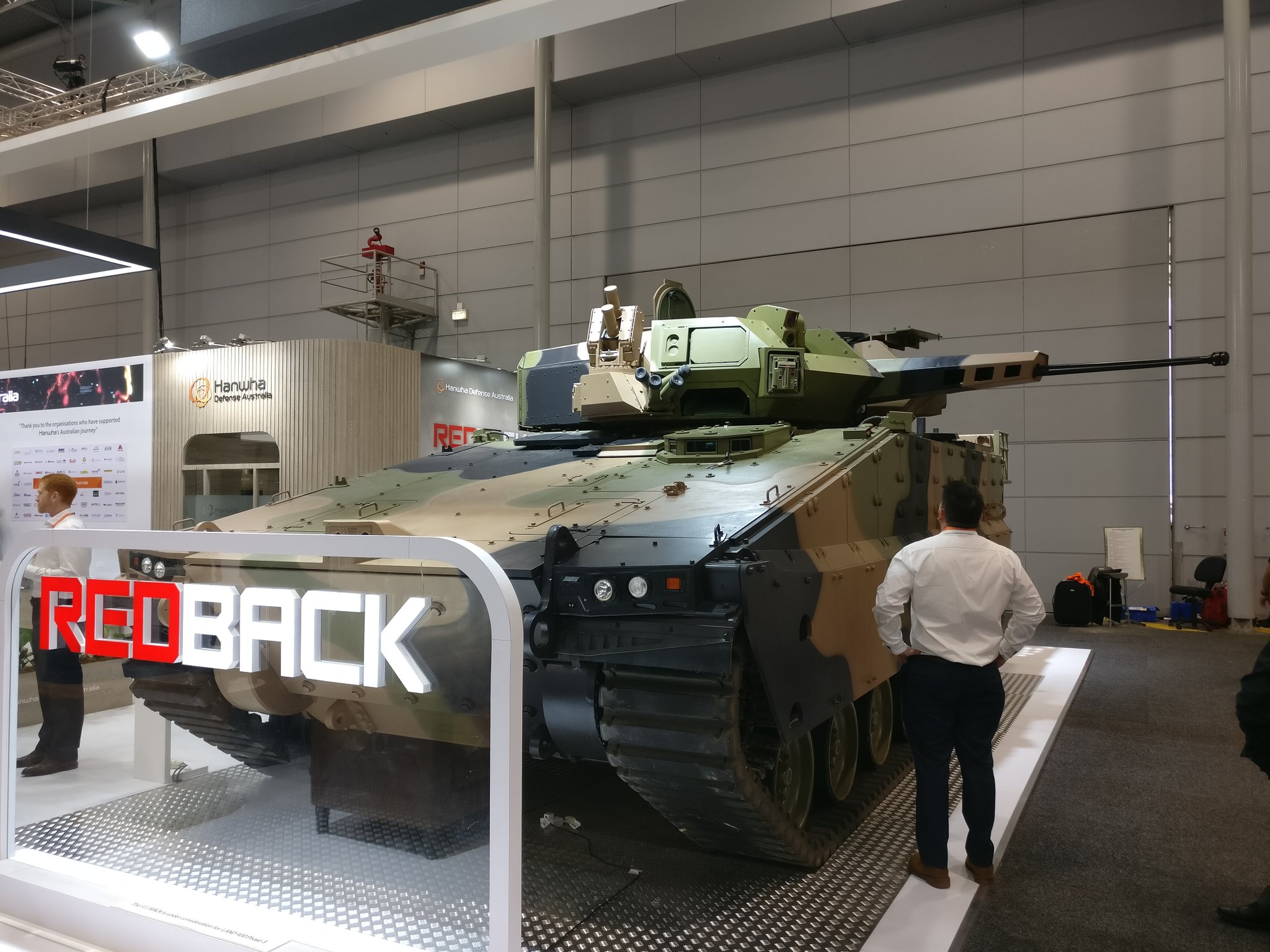The Australian government is anticipated to reach a decision within this week regarding the selection of either Rheinmetall, a German company, or Hanwha, a South Korean competitor, to manufacture advanced infantry fighting vehicles (IFVs) in a defense contract valued at approximately US$10 billion.
Referred to as Land 400 Phase 3, the intended acquisition of tracked infantry fighting vehicles stands as one of the most expensive and lucrative contracts in the history of the Australian Army.
According to a report from Australian Broadcasting Commission (ABC), a decision on the five-year-long tendering process is imminent and may be reached as soon as this week.
The procurement of state-of-the-art IFVs is to replace the Australian Army’s M113 armored personnel carriers, which date back to the Vietnam War era.
Rheinmetall, a leading German defense company, is putting forward its well-established Lynx vehicle, manufactured in Queensland, Australia, as its offering for the LAND 400 Phase 3 project.

On the other hand, Hanwha, a South Korean defense firm, has offered an entirely new and cutting-edge product named the Redback.
Their proposal includes the ambitious plan to establish a state-of-the-art manufacturing facility for the Redback in Geelong, located in the electorate of Defense Minister Richard Marles.
The procurement project faced a significant change earlier this year. The Labor’s Defense Strategic Review made a substantial adjustment to the scope of the project, reducing the original requirement for 450 Infantry Fighting Vehicles (IFVs) to just 129.
Budget considerations likely influenced this adjustment. In light of the significant expenses associated with acquiring nuclear-powered submarines under the AUKUS pact, PM Anthony Albanese’s government is seeking additional cost savings in the defense budget.
As a result, the Australian government, according to the ABC, is considering the option of building infantry fighting vehicles (IFVs) overseas instead of within the country.
Besides that, various defense commentators have raised doubts about the necessity of this equipment, asserting that the military’s focus should be redirected toward developing long-range missile strike capabilities instead.
Battle For Multi-Billion-Dollar IFV Program
The new report also said that in recent weeks, the German government had intensified its efforts to secure the LAND400 deal by promising to purchase over 100 Australian-made Rheinmetall Boxer heavy weapon carriers. But this commitment is dependent on winning the larger LAND400 contract.
As a decision on the multi-billion-dollar IFV program is expected in the coming days, Berlin is ramping up a diplomatic and military-backed PR campaign to boost Rheinmetall’s chances of winning the contract.
German Army Chief Lieutenant General Alfons Mais visited Australia for the first time to meet troops participating in Exercise Talisman Sabre and toured Rheinmetall’s factory in Queensland.
When asked about the Boxer deal’s fate if Germany doesn’t win the IFV contract, the Army Chief stated he expects the first vehicle in 2025 and hopes the contract can be signed in Q4 of 2023.
“I’m totally convinced, and I hope that our parliament will decide in the fourth quarter of 2023 that the contract can be signed,” he said.
Meanwhile, South Korea’s Redback vehicle outperformed the Lynx in the Army’s rigorous “risk mitigation activity” in 2021, propelling Soeul into a more favorable position.
Previous reports also suggest that the Australian Army favors Hanwha’s Redback vehicle over its German competitor based on its superior performance during comprehensive testing.
But in a strategic move to bolster its standing in the fiercely contested $10 billion IFV (infantry fighting vehicles) program, South Korea has introduced an enticing proposition.
Major General Cho Hyun-ki, the Deputy Minister of South Korea’s Defense Acquisition Program Administration, highlighted the crucial partnership shared between the Republic of Korea (ROK) and Australia in safeguarding peace and democracy within the Indo-Pacific region.

The South Korean General revealed that the “Republic of Korea (ROK) could also eventually deploy the Australian-made Redback vehicle on its own soil.”
Moreover, Major General Cho Hyun-ki underscored the potential ramifications of an expanded defense collaboration. Should the Australian Army introduce the Redback IFV into its fleet, the ROK military may consider acquiring the same vehicle as an emergency force, especially in response to unforeseen contingencies on the Korean peninsula.
That said, the competition between Hanwha and Rheinmetall is reaching a critical juncture, with significant political and diplomatic maneuvers expected to influence the outcome.
- Contact the author at ashishmichel(at)gmail.com
- Follow EurAsian Times on Google News




